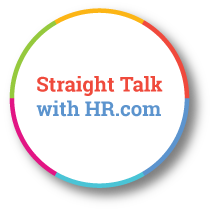The Metaverse: Opportunities And Challenges For HR Leaders In Shaping The Future Of Work
Exclusive interview with Allison Horn, Managing Director, Talent and Organization Consulting, Accenture
Posted on 04-24-2023, Read Time: - Min
Share:


 |
“By using a VR training platform, such as the metaverse, HR leaders can drive efficiency and efficacy of upskilling initiatives, while also delivering data-driven insights that further inform broader enterprise talent development efforts,” says Allison Horn, Managing Director, Talent and Organization Consulting, Accenture. In an exclusive interview with HR.com, Allison discusses the transformational impact of the metaverse on work, including collaboration, human connection, and learning opportunities. She emphasizes the importance of addressing safety, security, and privacy concerns, while also harnessing the potential of emerging technologies. |
Excerpts from the interview:
Q. How do you think the metaverse will change how we work, and what should HR leaders be doing to prepare for this shift?
Allison Horn: The metaverse will revolutionize how we work by creating new opportunities for collaboration, human connection and learning. Whether in 2D or 3D, immersive learning is unique in its durability and ability to scale at a consistent level of quality – meaning, the more likely that skill gets applied when needed. HR leaders should develop a strategy that balances current demands against future goals. This could mean pairing with innovative capabilities — such as generative AI — to create more authentic learning environments or to personalize in ways that feel distinctly human.Q. Accenture has been exploring the potential of the metaverse and how it can be leveraged to enhance collaboration and learning for its employees. What potential opportunities and challenges do you see in adopting the metaverse in the corporate world?
Allison Horn: The potential of the metaverse in the corporate world is significant, offering opportunities for innovation, product and service transformation. When paired with generative AI, there is immense potential to enhance collaboration, accelerate content creation and augment cross-functional learning in the metaverse. Just as many dismissed the rise of digital business —or approached the web as simply digitizing a piece of paper — leaders are at a critical inflection point; a seminal moment that can, and will, pass them by if they don’t act now.In California, for example, our work with a utility company is enhancing worker safety by simulating environments where decision-making is closely tied to safety, and practicing skills before entering the field. With just a headset, a user can learn how to identify and respond to issues, while practicing and preparing for the real world.
However, to ensure success, companies must also address user concerns around safety, security, and privacy. By putting trust at the core of a metaverse strategy, organizations will be able to build experiences that employees are eager to engage and return to, as they’ll feel free to express their authentic and unique selves in a safe and respectful manner.
Q. With the rise of remote work and the metaverse, how do you think HR leaders can ensure employee engagement and collaboration while working in virtual environments?
Allison Horn: HR leaders embracing new approaches to skilling and talent development will find ample opportunity for engagement in omni-connected experiences where workers can participate, socialize and feel a sense of belonging, regardless of the geographic location. Digital twins of physical offices become familiar environments where employees can meet to network and collaborate while working through real-life operating scenarios.In our Nth Floor, Accenture has onboarded 185,000 new hires in the metaverse, which is not only crucial to our company culture but creates additional learning opportunities and feedback sessions throughout the remainder of an employee’s first year.
A visit to our virtual campus includes engaging in exhibits and learning games, such as the “Global Coffee Challenge," based on challenges facing a fictional company. Small teams work together to search the virtual world for clues, where along the way they experience many of the same challenges our clients face — supply chain issues, staffing shortages, and production problems. While working together to find solutions, teams build stronger connections and deepen their understanding of the type of work Accenture does.
Q. How can companies balance the benefits of incorporating the metaverse into work with concerns around privacy, security, and equity?
Allison Horn: This evolution of business requires a framework that is responsible for design. Leaders must first establish strong principles to guide the development of technologies and platforms within a diverse community of stakeholders. Within Accenture’s own workforce, we are prioritizing digital accessibility and inclusive design at scale – capitalizing on capabilities, such as accessing experiences in 2D and 3D, while advising our device and content partners on ways of embedding accessibility into future roadmaps.Research shows safety is the top priority in virtual environments, so companies must invest in predictive and real-time detection capabilities, as well as in-world features to empower users to manage their own safety and mirror experiences in the physical world. This will drive the adoption and acceptance of the underlying technology.
Q. How will the shift towards a metaverse future of work impact the skills and competencies employees need, and what steps can HR leaders take to develop these skills in their workforce?
Allison Horn: Both the metaverse and generative AI are having an immediate disruption in the traditional workforce models as organizations are radically rethinking how work gets done. In the long term, leaders must look to invest in reskilling and task redesign to fully harness the potential of these emerging technologies.By using a VR training platform, such as the metaverse, HR leaders can drive efficiency and efficacy of upskilling initiatives, while also delivering data-driven insights that further inform broader enterprise talent development efforts.
Generative AI can then teach systems to separate irrelevant data from data insights, helping to overcome potential biases. Lastly, don’t forget to start small. Emerging technologies can invariably involve a few hiccups to slowly build employees’ comfort and expertise in immersive environments.
Error: No such template "/CustomCode/topleader/category"!
